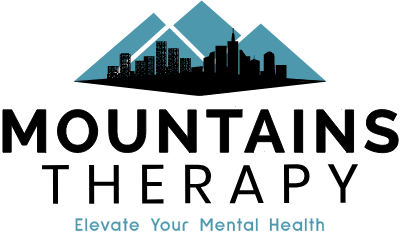Small Steps to Achieve New Year's Fitness and Mental Health Goals
Learn more about Counseling for Individuals.
As the new year unfolds, many of us embark on the journey of setting resolutions, with fitness goals often taking center stage. This year, let’s approach these resolutions with a fresh perspective—taking small, manageable steps that lead to lasting change. At Mountains Therapy in NJ, we believe that personal growth, whether physical, emotional, or mental, thrives on setting realistic and achievable goals. In this blog, we'll explore how breaking down your resolutions into actionable steps—and even reconsidering your relationship with social media—can lead to a healthier, more active lifestyle and improved mental health.
Rethink Your Social Media Usage
Social media can be a significant source of distraction, comparison, and stress, which may derail your focus on achieving New Year’s goals. At Mountains Therapy, we often explore with clients how reducing or deleting social media can help cultivate a clearer mind and healthier habits.
How Social Media Impacts Your Goals:
- Comparison Trap: Constantly comparing yourself to others’ curated lives can lower your self-esteem and make your own progress feel insufficient.
- Time Drain: Scrolling endlessly takes up time you could be using for exercise, meal prep, or self-care.
- Increased Stress: Negative news or online arguments can elevate stress and anxiety, making it harder to focus on your goals.
Benefits of Reducing or Deleting Social Media:
At Mountains Therapy, we encourage clients to explore how unplugging from social media can benefit not only their mental health but also their ability to set and achieve meaningful goals.
- More Time for Priorities: Deleting social media apps or setting time limits frees up hours in your day, giving you more time to focus on fitness goals, mental health, or quality time with loved ones.
- Improved Mental Clarity: Without the constant influx of notifications and updates, your mind has more space to focus on what truly matters.
- Boosted Self-Esteem: By stepping away from the comparison game, you can celebrate your progress without external pressures.
Examples of How to Reduce Social Media Use:
- Delete apps from your phone for the first month of the year to focus on your goals.
- Use a time-tracking app to limit your daily social media use to 15-30 minutes.
- Replace scrolling with a healthy habit like journaling, reading, or stretching.
Set a Clear Fitness Goal
Rather than setting a broad resolution like "get fit," focus on defining a specific and measurable goal. This gives your journey direction and purpose.
Examples of Clear Fitness Goals:
- Walk outdoors for 20 minutes three times a week to improve cardiovascular health and reduce anxiety.
- Incorporate 15 minutes of yoga or stretching into your evening routine to improve flexibility and calm your mind.
- Complete a home workout three days a week, focusing on strength and endurance.
Break Down the Goal
Once you’ve identified your fitness goal, break it into smaller, actionable steps. This strategy, often used in
Cognitive Behavioral Therapy (CBT), helps you stay motivated by making each step feel achievable. Breaking down goals helps you build confidence and maintain focus, while also reducing feelings of overwhelm.
Examples of Small, Actionable Steps:
- For walking goals: Start with 10 minutes a day and gradually increase by five minutes each week.
- For yoga/stretching: Follow beginner yoga videos on YouTube three times a week.
- For strength workouts: Begin with bodyweight exercises like squats, push-ups, and planks for 10 minutes.
Create a Realistic Schedule
Your fitness routine should fit into your daily life without causing stress. At Mountains Therapy, we encourage clients to align their goals with their schedules for better consistency.
Examples of Realistic Scheduling:
- Schedule a 15-minute walk during your lunch break.
- Do a quick 10-minute stretching session after waking up or before bed.
- Set aside three evenings a week for a 20-minute workout while watching your favorite TV show.
Build Accountability
Accountability keeps you motivated and on track. Share your goals with someone you trust or use tools to stay consistent. Incorporating accountability into your routine mirrors how clients in individual therapy benefit from regular check-ins and progress discussions with their therapist.
Examples of Building Accountability:
- Share your progress with a friend who’s also working on fitness goals.
- Use a fitness tracking app to log your daily activity and celebrate streaks.
- Join a fitness class or group to engage with like-minded people.
Celebrate Smalls Wins
Celebrating small achievements builds motivation and reinforces positive habits. It’s a strategy often encouraged in therapy sessions for building self-esteem and maintaining focus
Examples of Celebrating Small Wins:
- Treat yourself to your favorite smoothie after completing three workouts in a week.
- Reward yourself with a new pair of walking shoes after sticking to your fitness plan for a month.
- Plan a relaxing evening or treat yourself to a spa day after achieving a milestone like walking 10,000 steps in a day.
Embrace Variety
To avoid monotony and stay engaged, add variety to your routine. Trying new activities keeps you motivated and challenges different muscle groups.
Examples of Adding Variety:
This variety also parallels approaches in therapy—introducing new techniques or exercises can help clients stay engaged and motivated in their mental health journey.
- Alternate between walking, biking, and swimming to keep cardio fun.
- Try different workout styles like Pilates, HIIT, or Zumba.
- Explore outdoor activities like hiking or kayaking for a change of scenery.
Be Adaptable
Life happens, and sometimes you need to revise your plan. Being flexible helps you maintain progress without feeling discouraged.
Examples of Adjusting and Adapting:
If you miss a planned workout, reschedule it for another day or replace it with a shorter session.
If it’s raining and you can’t walk outdoors, switch to an indoor workout or yoga.
If you’re too tired for a full workout, do light stretching or meditation instead.
In therapy, this kind of adaptability is often discussed as a way to build resilience and reduce stress when things don’t go as planned.
The Intersection of Fitness and Mental Health
Taking care of your body through regular exercise positively impacts your mind. Studies show that consistent physical activity can reduce symptoms of depression, alleviate anxiety, and boost overall mood. At Mountains Therapy, we integrate physical wellness into treatment plans to support holistic healing.
Examples of Fitness and Mental Health Goals:
Walk daily to reduce stress and promote clarity.
Practice yoga or mindfulness to improve focus and reduce health anxiety.
Join a group fitness class to boost social connections and decrease feelings of isolation.
Final Thoughts
This new year, embark on your fitness and wellness journey with the power of small, intentional steps. By setting clear goals, breaking them into manageable tasks, and celebrating achievements, you can build habits that support a healthier, more active, and fulfilling life.
At Mountains Therapy, our team of experienced therapists and counselors in Montclair, NJ, is here to help you stay motivated and achieve your goals—whether they’re related to fitness, relationships, or mental health. Contact us today to learn more about our therapy and counseling services and start your journey toward a healthier, happier you.














